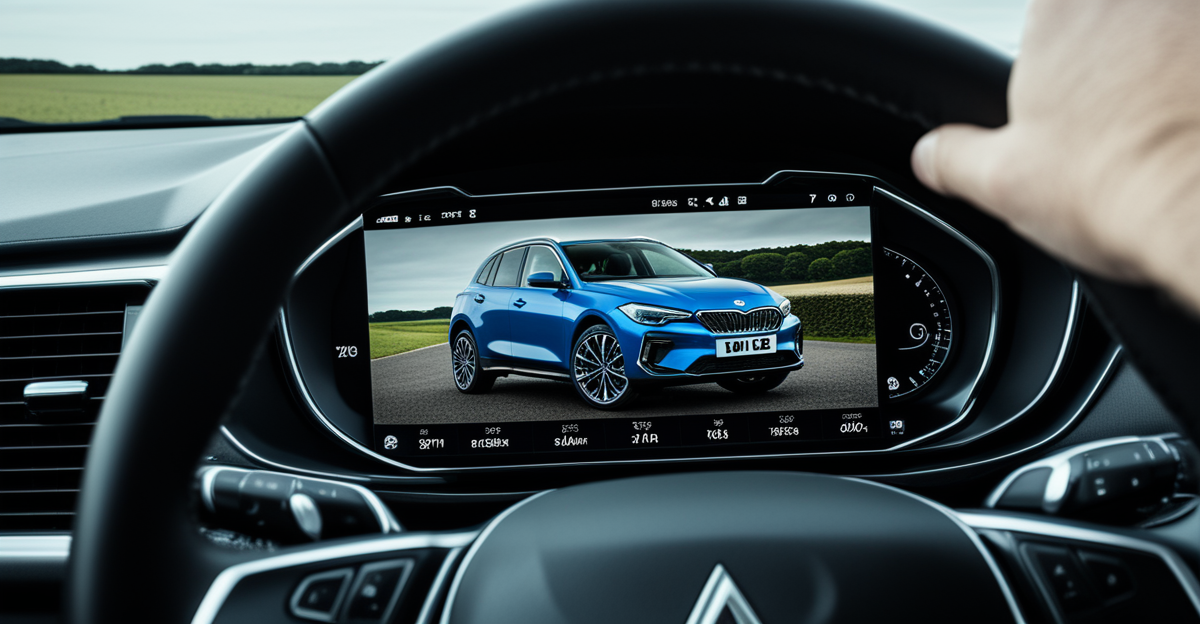Key Trends Shaping UK Car Buyer Preferences
In the UK automotive market trends, the demand for electric vehicles (EVs) and hybrids is accelerating rapidly. This shift is driven by increased consumer awareness of environmental impact and government policies promoting sustainability. Buyers now prioritize eco-friendly features, such as lower emissions and enhanced energy efficiency, reflecting a broader commitment to sustainable living.
Car buying habits are also evolving, with a rise in online car purchases and digital sourcing. Consumers appreciate the convenience and transparency offered by online platforms, which allow easy comparison of electric and hybrid models alongside traditional vehicles. This trend aligns with broader digital transformation in retail, empowering buyers to make informed decisions from home.
Also to read : What Are the Most Exciting Trends in UK Automotive Technology?
Sustainability remains a core factor influencing choices. Many UK buyers seek cars with certifications of green technology and long-term cost savings through reduced fuel consumption. As a result, automakers are investing heavily in electric and hybrid technology to meet this growing demand, shaping the future landscape of the UK’s car market with a clear focus on sustainability and innovation.
Key Trends Shaping UK Car Buyer Preferences
Understanding the UK automotive market trends reveals a clear shift toward electric vehicles (EVs) and hybrids. Demand for these models has surged, driven by growing consumer awareness of environmental issues and government incentives promoting cleaner transportation. Buyers now prioritise sustainability and eco-friendly features more than ever, influencing their car buying habits.
Also to read : How are UK car manufacturers integrating AI into production processes?
Another prominent trend is the rise of digital platforms for vehicle sourcing. Online car purchases have become increasingly popular, offering convenience and broad access to vehicle options. This digital shift caters to modern buyers seeking efficiency and transparency in the car buying process.
Consumers also demonstrate growing interest in vehicles with advanced technologies that support energy efficiency and lower emissions. The emphasis on sustainability translates into practical preferences, such as better battery ranges, reduced carbon footprints, and integration with renewable energy systems, which shape the UK car buyer’s choices today. Overall, these trends illustrate how car purchasing decisions are evolving toward greener, smarter, and more accessible options in line with global and local environmental goals.
Comparing Current and Historical Consumer Preferences
Understanding UK car buyer trends requires examining how preferences have shifted, particularly the move away from petrol and diesel vehicles toward electric vehicles and hybrids. Historically, UK consumers focused on engine power and fuel efficiency, but recent preferences prioritize sustainability and innovative technology. This change reflects broader environmental concerns and evolving consumer behavior.
Another significant shift involves attitudes toward ownership versus mobility solutions. In the past, car ownership was often seen as a status symbol and necessity. Today, there is growing interest in shared mobility and flexible transport options, signaling a change in how buyers view personal vehicle use.
The evolution of must-have features also marks this transition. Whereas prior models emphasized basics like air conditioning and radio, current preferences include advanced connectivity, safety features, and infotainment systems integrated with eco-friendly car technologies. Thus, automotive market comparisons highlight a clear progression influenced by technology, environmental priorities, and lifestyle changes that are shaping the future of car buying in the UK.
Comparing Current and Historical Consumer Preferences
Consumer behaviour in the UK automotive market has evolved significantly, reflecting broader shifts in UK car buyer trends. Historically, petrol and diesel vehicles dominated the market, with consumer preferences centred on performance and fuel economy. Today, the emphasis has shifted decisively toward electric vehicles (EVs) and hybrids. This transition highlights a clear move away from traditional fuels, driven by increased environmental awareness and stricter emissions regulations.
The change in consumer preferences also extends to attitudes about vehicle ownership. While ownership was once seen as a key status symbol and convenience factor, many buyers now consider alternative mobility solutions, such as car sharing or subscription models. This reflects a broader shift in urban lifestyles and mobility needs, influencing car buying habits.
Vehicle features have undergone transformation too. Modern UK car buyers prioritise technology like advanced safety systems, energy efficiency, and connectivity options. These attributes meet the dual demands of sustainability and digital integration, showing how historical priorities have evolved into more futuristic and eco-conscious consumer preferences within the UK automotive market trends.
Factors Influencing Consumer Choices in 2024
Environmental legislation and UK government incentives remain pivotal in shaping car buyer decisions. Policies like tax rebates and emissions regulations encourage the shift toward electric vehicles, making sustainability a crucial influencing factor. Buyers are more responsive to these incentives as they seek vehicles that comply with stricter standards while offering long-term savings.
Technology also plays a significant role in influencing consumer preferences. Features such as advanced safety systems, high connectivity, and intuitive infotainment are increasingly sought-after. These technologies enhance not only convenience but also driving safety and energy efficiency, directly impacting buyer decisions in today’s automotive market.
Financial considerations, including total cost of ownership, are particularly influential during economic fluctuations. Consumers weigh upfront prices against maintenance, fuel savings, and potential government incentives when selecting models. This blend of environmental, technological, and financial factors combines to determine consumer preferences in the evolving UK car market in 2024.
Factors Influencing Consumer Choices in 2024
In 2024, government policy heavily shapes consumer preferences in the UK automotive market trends. Environmental legislation sets stricter emissions targets, prompting incentives for purchasing electric vehicles and hybrids. These policies directly influence car buying habits by reducing upfront costs and encouraging sustainable options.
Technology advancements also play a crucial role in buyer decisions. Modern vehicles increasingly feature advanced safety, seamless connectivity, and sophisticated infotainment systems. These technologies appeal to consumers seeking both convenience and security, making such features a priority during the decision-making process.
Financial factors remain central to consumer choices amid economic uncertainty. The total cost of ownership, including insurance, maintenance, and fuel savings on electric or hybrid models, affects purchasing behavior. Buyers weigh long-term savings against initial expense, with government incentives often tipping the balance in favor of greener vehicles.
Together, these drivers—legislative pressure, technological innovation, and financial considerations—are key influencers in shaping the landscape of UK automotive market trends in 2024. Understanding these factors helps explain why sustainability and cutting-edge technology dominate today’s car buying preferences.
The Growing Role of Car Sharing and Alternative Mobility
Car sharing has surged as a prominent feature in UK transport trends, reshaping traditional car buying habits. Increasing urbanisation and changing lifestyles motivate many consumers to prioritise access over ownership. This shift reflects a broader acceptance of the shared economy, where flexibility and cost efficiency outweigh the desire to own a vehicle outright.
Peer-to-peer car rentals and car-sharing services offer convenient, affordable alternatives for infrequent drivers. They appeal especially to those in metropolitan areas who seek to reduce expenses related to maintenance, insurance, and parking. This trend aligns with evolving consumer preferences that favour environmentally friendly options and less congested urban zones.
Moreover, the integration of shared mobility with multimodal transport solutions enhances last-mile connectivity. Consumers can combine car sharing with public transit or cycling, creating efficient, sustainable journeys. Embracing these alternative mobility options addresses urban challenges such as pollution and limited parking, contributing to a more sustainable and accessible transport landscape in the UK.
The Growing Role of Car Sharing and Alternative Mobility
The rise of car sharing in the UK marks a significant shift in consumer attitudes toward mobility. Unlike traditional ownership, shared economy models offer flexible access to vehicles, catering to urban dwellers and younger demographics who prioritise convenience and cost savings over possession. This change responds to evolving UK transport trends, where users prefer pay-as-you-go options that reduce the burden of maintenance and insurance.
Peer-to-peer rentals have expanded, enabling individuals to rent their cars when not in use, further boosting vehicle utilisation efficiency. Such services complement public transit by integrating with multimodal transport, offering seamless options for first and last-mile travel.
This broader acceptance of alternative mobility reflects changing car buying habits. Many consumers now weigh access over ownership, especially in congested cities where parking and traffic are challenges. As a result, car sharing and shared mobility solutions are reshaping how people think about personal transportation, contributing to a more sustainable and adaptable transport ecosystem in the UK.
Key Trends Shaping UK Car Buyer Preferences
The UK automotive market trends in 2024 reveal a continuing rise in demand for electric vehicles and hybrids. Consumers are increasingly drawn to sustainable options that prioritise low emissions and energy efficiency. This shift highlights how consumer preferences are now closely aligned with broader environmental concerns and government incentives promoting greener transportation.
Consumers also show heightened interest in purchasing vehicles online. The convenience and accessibility of digital platforms support more transparent and informed decisions, reflecting changing car buying habits. Buyers can compare models easily and access detailed information on eco-friendly features, underscoring the growing role of digital sourcing.
Sustainability remains a dominant influence, with many consumers seeking cars that offer long-term savings through reduced fuel consumption and lower carbon footprints. This trend drives manufacturers to focus on creating more efficient electric and hybrid models. Together, these factors shape a UK automotive market where innovation, sustainability, and digitalisation intersect directly with evolving buyer expectations and practical needs.









